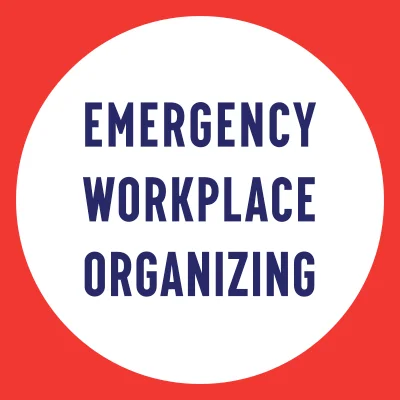

EWOC Year in Review
Announcements 📜 Become a Sustaining Donor to EWOC Help us stay independent and continue to meet the organizing needs of workers in their fights for workplace democracy. Start your sustaining donation before December 31! The “Unite & Win” Podcast Launches in January EWOC will publish its first podcast, “Unite & Win,” starting January 13 in partnership with […]
The post EWOC Year in Review appeared first on EWOC.


Elon Musk and SpaceX attack the National Labor Relations Board
Elon Musk’s SpaceX is challenging the constitutionality of the NLRB in a lawsuit that could undermine the enforcement of national labor law.
The post Elon Musk and SpaceX attack the National Labor Relations Board appeared first on EWOC.
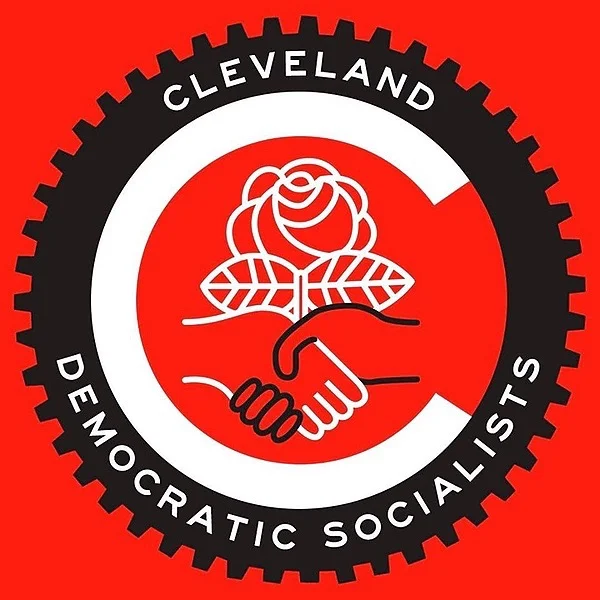

Critique of Transgender Marxism, Essay 5
The author of this piece chose to remain anonymous.
This is a review and commentary on “A Queer Marxist Trans Feminism: Queer and Trans Social Reproduction” by Nat Raha, from Transgender Marxism. This review is from an agender perspective.
In the essay, Raha says that domestic social reproduction is a “feminine act.” In other words, they reify gender based on the particular gendered expression that occurs in the context of various societies where gendered signification is fungible, and ultimately arbitrary, based on which generation you’re in. In other words, the essay romanticizes a domesticated, sexist view of femininity, where feminine people do domestic work. I always disliked the word feminine, as it implies a traditional, binary sex, and never tries to overcome this binary to go beyond a representational view of gender.
Gender is fungible in every generation you’re in. Queerness itself is outside of time, responsible for all change – temporality, time itself, and the variable context of each generation is what constitutes the gendered expression of each era. Gendered expression does, as the book says, have its own emotional labor that one must go through for queer people. For queer people such as myself and my partner, not being recognized as queer is a sort of invisibility that can occur. Essays like this erase the experience of being agender. An agender view of these gendered phenomena is that like capitalism and its axiom of profit, gender is not extended anywhere in space. Heteronormativity is in contrast to queer gender, which takes traditional gender and performs it as straight people perform it, or it bends the expression.
But for me, gender expression is fungible. Archers in the past wore high heels; indigenous peoples and royalty such as pharaohs wore leggings and makeup. The makeup industry made makeup a feminine thing, as with other things that are bought and sold back to us through gendered expression of capital; we try to differentiate ourselves as the particular tries to differentiate itself but end up only creating a new universal. This is what occurs in Hegel’s Phenomenology of Spirit in the “Sense Certainty” and “Perception” sections. When you point to a thing, you get a universal of language. Language can only speak about things on a general level; it cannot capture the infinite difference of sense, and our ideas about gender are in fact immobile.
Because the only things which relate to the immobile motor in Deleuze and Guattari’s Anti Oedipus are Oedipus, capital, and heteronormativity, it makes me wonder: is gender itself a sort of machinic normativity, reproduced by representational sameness? Whenever we try to say gender is a fixed idea, we are not recognizing that our concepts of gender flow as through a stream, or as through the flows of the mega-machine; whatever its dominant beauty standards deem is gender is bought or sold to us. Ultimately, this strain of Marxist feminism does not want to produce rhizomatic views of gender that are not based on binary dichotomies. They focus on an idea of a binary domesticated sexism, but nonetheless think femininity relates to a very narrow time in history’s view of domesticity and femininity. It’s a performative contradiction.
The essay suggests that there should be compensation for all the extra work that queer people do that is not caught up in the creation of surplus value for capitalists, like emotional labor and nurturing actions. Wouldn’t it be beneficial to call nurturing and mutual aid a human action, instead of further stigmatizing and entrenching rigid gender boundaries that make one think they need to repress their emotions to perform as a man or diminish their needs for the sake of others to perform as a woman? That’s an ass backwards view of gender, and gender itself is an identity which is formed under capitalism. It would be better to reject it for a view that does not even have a work/play divide. In Against His-Story, Against Leviathan, Fredy Perlman shows that work and play are a false dichotomy, a dichotomy that goes unaddressed by essay 5 of Transgender Marxism. It would instead claim emotional labor for “femmes” and reify gender essentialism amidst its claims to emancipation. Another performative contradiction.
The views expressed in this article are the author’s own and do not necessarily reflect those of DSA Cleveland as a whole.
Sources/Further Reading:
- Transgender Marxism
- Perlman, Fredy. Against His-Story, Against Leviathan
- Hegel, Georg Wilhelm Friedrich. Phenomenology of Spirit
- Gilles, Deleuze, and Felix Guattari. Anti-Oedipus
The post Critique of Transgender Marxism, Essay 5 appeared first on Democratic Socialists of America.
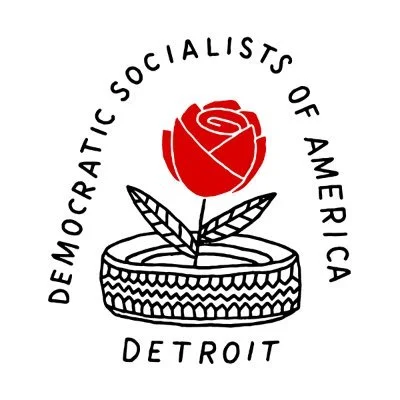

Socialist in Office: Training New Socialist Organizers in Dylan Wegela’s District
By Anthony D., Diane R., Ashley H., Dave N.

Compared to liberals and progressives, socialists have a unique perspective about the purpose of electoral politics and winning elected office. We understand that the mass social change we want cannot be accomplished unless millions of ordinary people are moved to fight for their own liberation in the class war against bosses and billionaires. To that end, the socialists we elect have a historic role to play in bringing this about by operating primarily as organizers who bring workers into the struggle alongside them.
Within the modern left, most electoral endorsements have been viewed strictly as a commitment to support candidates throughout their campaign: to fundraise, build up their communications infrastructure, and develop a field program to knock thousands of doors and talk to voters. If our endorsed candidates win, the level of support we offered during the campaign immediately drops off after Election Day and we move on to the next campaign. Very rarely, if ever, do we devise a plan during the endorsement process for how they will operate once in office and what they should prioritize. We send them off on their own into completely hostile legislatures designed and controlled by two political parties completely beholden to capital and hope that they alone can beg and bargain for reforms on behalf of the working class.
Over the last half century this individualistic approach has ultimately been unsuccessful in winning gains for the working class or in getting our class organized to fight. As DSA becomes more adept at winning elections in the vacuum created by a pro-genocide Democratic Party, our modern task as socialists is to think of Election Day as a checkpoint rather than as the finish line. In practice, this means orienting our endorsed candidates and elected officials towards the primary goals of making more socialists, building socialist organization, and leading as spokespersons of our independent party.
At the 2023 Metro Detroit DSA Membership Convention, our chapter’s highest decision-making body, members voted to take the first steps in this direction by launching the Socialists in Office Committee (SIOC) as a body in which elected chapter leadership would coordinate our organizing work with our endorsed elected officials, also known as Socialists in Office (SIOs). The resolution and amendment we passed called for an organizing-focused purpose and vision for the SIOC that prioritized creating our own party-like infrastructure so we could recruit and train socialist candidates from within our own ranks, who would think of themselves primarily as organizers of the working class, rather than purely as legislators. It was also a move towards building a working-class movement outside of electoral work by using our SIOs’ offices to reach, educate, and organize their constituents into class struggle and self-activity. Unfortunately, very little has been done to see this through since then.
At our 2025 Convention, members passed an amendment to the SIO Committee consensus resolution that created a unique and experimental ‘Geographic Working Group’ as a space for rank-and-file DSA members residing within State Representative Dylan Wegela and Congresswoman Rashida Tlaib’s overlapping districts to regularly meet with and organize alongside them. Our SIOs are surrounded on a daily basis by politicians ranging from corporate Democrats to fascist Republicans who serve the same ruling class, so we imagined this group as the socialist antidote and support system. The idea was to experiment with a new concept of how to operate in office and carve a path towards our political independence. The amendment included the clause below, which initiated both this article and a verbal summary of it given by group members at the December 2025 General Meeting.
The Geographic Working Group will issue a report at both the six month (December 2025) and twelve month (June 2026) mark to:
- provide an update on progress towards our goals and explain any roadblocks to accomplishing them
- offer an analysis and critique to consider whether it should be replicated by future similar bodies or other SIO Committees around the country
- normalize open reporting on the progress of this and other unique experiments in the chapter — all of which can be expected to have misses and fails, which are acceptable so long as the lessons learned are defined and shared with membership similar to past electoral campaigns
Since Dylan Wegela was endorsed by the chapter while in office in 2024, he has been requesting help to launch bottom-up organizing projects in his district with support from Metro Detroit DSA members. Calling back to his experience of leading rank-and-file Arizona public school teachers in a statewide strike in 2018, this approach is meant to bring his constituents into permanent mobilization beyond a typical re-election campaign cycle. The idea was to put them in touch with socialist organizers and strategy, building towards a long-lasting base for socialist politics and worker self-organization in his district. Because of his limited staff capacity, this vision needed help from DSA members.
Dylan’s predominantly working class district (Garden City, Westland, Inkster, Romulus) is geographically distant from the main concentration of where chapter members live and is a 30–40-minute drive from Detroit and Hamtramck, the city where we hold our monthly General Meetings. In 2022, when the Electoral Committee declined to move Dylan’s endorsement request forward, to instead focus on Rashida, one of the main reasons was that just five dues-paying members lived in his district. Since membership bumps in response to both Trump’s re-election and Zohran’s primary win as well as intentional recruitment by both Dylan and this group, there are now 40 dues-paying members in his district.
We believed that if we did the work to create a regular, local, in-person meeting space within Dylan’s district and conducted careful outreach and onboarding, that many of the new members in the district would be more likely to show up and organize with a group located closer to them. Texting through the list of members in Dylan’s district produced around 10–15 onboarding calls. Almost everyone we talked to expressed some amount of demoralization over Trump’s reelection and a desire to build more local connections with socialists. Many felt compelled to finally get active because of Zohran’s primary victory in June. Throughout our meetings, we’ve also heard:
- Folks have been more likely to participate in DSA through this group since it’s very close to them and they get to meet their socialist neighbors. The group offers DSA members a way to connect with their neighbors and talk about shared concerns. The smaller group setting has been an easier way to interact with each other and start to build community and social connections.
- Folks have come into DSA already socialist-leaning and gone to their first DSA meeting but were overwhelmed with how much was going on. This group felt like an easier point of engagement with DSA.
- The group has felt like a welcoming space for DSA members to bring their friends and significant others.
As of the December 2025 General Meeting, the group has met eight times with an average attendance of around 12 people, usually composed of DSA members, non-DSA members brought along by members, and constituents that Dylan recruits through door-knocking, social media, or coffee hours. We meet in person every two weeks, and the Signal group chat that people are invited to after attending a meeting is at 33 members. Only six of those members had participated in DSA prior to joining this group and three people have been moved to join DSA through participation in it. Dylan joins every meeting, calling the group “a refreshing reminder that none of us are in the struggle alone,” and says, “We’re seeking to answer an essential question for our movement: Now that we hold office, how do we use it to organize the working class and grow our mass movement?”
The group’s meetings run for two hours and start with someone reiterating our political purpose (Dylan and Rashida need a mass movement behind them and this group can help develop socialist organizers and potential future socialist candidates to make that happen) and experimental concept (this is how SIOs should use their elected office). Each attendee then introduces themselves and shares why they’re a socialist or what brought them to the meeting, followed by a 30-minute political discussion based on a reading (distributed in advance) on basic socialist theory, organizational democracy, or electoral organizing strategy. These political discussions are based around easy-to-read, short Jacobin articles and have acted as a way to onboard new members and non-members alike who are new to socialism and organizing. They’ve also allowed us to talk about the broader goals of socialist organizing and our theory of social change beyond just supporting our SIOs.
We spend the rest of our meetings working on organizing plans, as a means to develop group members who have never organized into experienced leaders. Our projects are in various stages and led by different members:
- Collected signatures for the Michigan For The Many campaign, the three chapter-endorsed statewide ballot initiatives, including at the October No Kings rally in Livonia and the November Santa Land parade in Westland. Notably, none of the nonprofits leading the ballot initiatives had established a presence in this area. Signature collection at events has been used as a conversation opener to talk to people about socialism and DSA, give them one of our DSA palm cards, and try to recruit to our group.
- Started power mapping of Dylan’s district so we can learn about local political dynamics, as a counter to the typical “insider politics” preferred by establishment political operatives.
- Launched a public donation drive in response to the government shutdown and SNAP benefit suspension, to funnel donations to local food pantries.
- Planned a group budget for the year to fund food, drinks, and a private meeting space. The budget allows more transparency to the chapter for our plans and helped us to deliberate on our priorities, like meeting in person, every two weeks, at a quiet, private space with plenty of room to expand, and offering food to entice more folks to attend.
- Organizing tenants at a 300-unit apartment complex in Inkster. This was initiated by Dylan, with a town hall attended by 50 tenants, after he learned many of them were living in really bad conditions and did outreach to the whole building by mailing them surveys about it paid for with office funds. Organizing is temporarily on hold, due to political dynamics with Inkster City Council members who collaborated with Dylan on the event. They preferred to wait until the spring to do an outdoor community engagement event before building the tenant organizing group.
- Building towards a public event led by Dylan, Rashida, and Westland/Wayne and Dearborn teachers as a way to facilitate communication among multiple teacher unions and help DSA members in those unions to organize with their coworkers. SIOs, public school teachers, and local DSA members organizing together are some of the key components towards the long-term goal of establishing a local socialist political machine.
Group members have shared responsibilities for running the meetings, with some members facilitating our political discussion by preparing discussion questions beforehand and others taking turns to take notes and chair. Distributing the work teaches through experience, including experience in making group democratic decisions.
Diane, from Romulus, says the group is “investing our time and efforts directly in the communities we live in, building our grassroots movement while building our DSA chapter as a whole.” In October, Diane spent 19 days in the hospital. “This group stepped up to support me in my recovery, creating a GoFundMe. This is community in action,” said Diane, adding, “Being a part of this group made me see how change can take place in my own community and I have discovered my own voice in creating the changes I hope to see.”
We plan to continue expanding this group as a training ground to create more socialist organizers in an area where our chapter has not previously had an established presence. For workers to take over and transform society, we need to be everywhere we can to produce more organizers and force the hand of capital in legislatures and workplaces. Socialist organizers developed through this group can confidently go out into their neighborhoods, unions, and workplaces and lead other workers.
Socialist in Office: Training New Socialist Organizers in Dylan Wegela’s District was originally published in The Detroit Socialist on Medium, where people are continuing the conversation by highlighting and responding to this story.
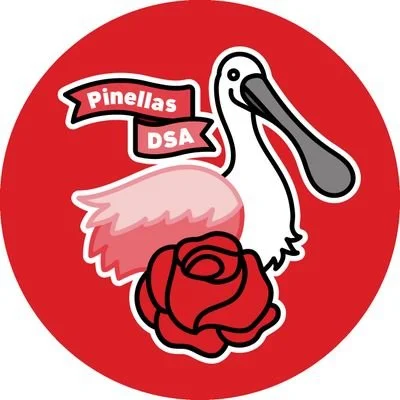

Intro to Marxism (Part One): What is a Dialectic?

The Democratic Socialists of America is a big-tent, multi-tendency organization, representing diverse strains of thought from across the political left. However, one thing that unites socialists of all tendencies is the centrality of the work of Nineteenth Century philosopher, journalist, and historian Karl Marx.
In order to change the world, we must take the right actions. In order to take the right actions, we must properly understand the world as it is. And, in order to properly understand the world as it is, we must ask the right questions. Marxism, when properly understood, is a framework for accomplishing this.
But… do we properly understand Marxism? That is what we’ll begin exploring today.
This article is the first in a series of short overviews covering key concepts in Marxist thought. Each is meant to distill down a complex idea and explain it in the simple terms possible. To start, let’s begin a concept that is at the core of Marxist philosophy; one which seems complicated at first, but is actually very simple: the idea of dialectics.
Dialectics: Change Through Tension
Dialectics is an ancient philosophical framework used to understand how change happens. Rather than seeing the world as fixed or static, dialectical thinking treats reality as a process — something constantly developing over time.
At the core of dialectics is the idea that change emerges from tension and contradiction. Nothing exists in perfect balance forever. Every situation contains opposing forces that push against one another, and it is this struggle that drives movement and transformation.
A dialectical process is often explained using three terms: thesis, antithesis, and synthesis.
The thesis is an existing condition or dominant way of doing things. Over time, problems or limitations naturally come up. The contradictions between the ideals of the thesis, and the problems that surface when the thesis it tested by reality, eventually give rise to an opposing force — the antithesis — which challenges the thesis.
The conflict between thesis and antithesis does not simply end with one defeating the other. Instead, their interaction produces something new: the synthesis.
The synthesis resolves some of the conflict by incorporating elements of both the thesis and the antithesis, while also transforming them. Importantly, the synthesis is not a final endpoint. It becomes a new thesis, containing its own internal contradictions, and the process begins again.

Why the Dialectical Method Matters
The dialectical model of thinking emphasizes that progress is not smooth or linear. Change happens through struggle, breaks, and leaps. Old forms give way to new ones, but traces of the old remain within the new. History, ideas, and social systems all develop in this uneven, dynamic way.
Dialectics can be applied beyond philosophy. We can see it in nature, where opposing forces like stability and disruption shape ecosystems. We see it in society, where cooperation and conflict exist side by side. We even see it in everyday life, when problems force us to rethink assumptions and adapt. By focusing on contradiction and motion, dialectics helps us understand the world not as a collection of finished things, but as an ongoing process of becoming; always shaped by tension, struggle, and change.
This mode of thinking is central to Marxism; as we’ll explore in the next chapter, while Marx didn’t invent the dialectical method, his great innovation was applying that model to history and the world around us. This is what’s called “dialectical materialism,” a core idea in Marxist theory.


How to Explain the Rise and Reemergence of Trump
Bruce Nissen

Why is Trumpism so popular in our country? In the past, even in times of conservative resurgence, the right-wing politicians and governments have not so openly flaunted basic rules of constitutional governance as has Trump (Think Richard Nixon, Ronald Reagan, etc.).
A recent review in The Nation magazine by Kim Phillips-Fein of Melinda Cooper’s book Counterrevolution: Extravagance and Austerity in Public Finance addresses this question in a manner I had never considered before (November 2025 edition of The Nation). Phillips-Fein argues that more-or-less extreme inequality has always been with us in the U.S. In the 20th century that inequality was produced by major industrial corporations which were collectively controlled by shareholders that included pension funds, banks, and wealthy individuals. This has changed in today’s economy: such stakeholders have been supplanted by private equity funds, financial firms, family trusts, and tech firms owned by a few wealthy founders.
These new rulers are no longer accountable to bureaucratic middle managers or, for the most part, a larger pool of external shareholders. Instead, the new powerhouses are “families” (either biological or ideological) which are freer from normal constraints by outside forces. Private equity, venture capital, family trusts, and the like are much more likely to pursue politically aggressive goals of an extreme libertarian or culturally conservative nature.
For example, look at Trump’s cabinet. Betsy deVos (Dept. of Education), Steven Minuchin (Treasury), Sonny Perdue (Dept. of Agriculture), hedge fund operative Scott Bessent (Treasury Secretary), investment banker Howard Lutnick (Dept. of Commerce) all populate or have populated Trump’s cabinet. These are names of families who are owners of private capital; they are not operatives or bureaucrats serving ruling class family interests as a whole.
An underlying shift in the nature of American capitalism has produced a new, more open and markedly brutal form of federal governance, according to this perspective. Earlier relatively frictionless dominance of corporations by shareholder interests is to some degree supplanted by family rule enforced by gloves-off brute force.
As Phillips-Fein puts it:
For Trump, the United States is just one large, privately held corporation, controlled and dominated by a few people who perceive themselves as being able to do what they want. No stockholders, no activist shareholders, no debates or discussion, no annual meetings, no publicly released reports, no room for dissent or deliberations — just a tiny group of owners who enrich themselves while the rest of us stand on the sidelines.
This may explain why Trump rules as he does, but it does not explain his popularity. Here we need to note that Trump is not all that popular — his approval rating for the way he runs the economy is down in the 30+% range. In addition to standard explanations for what support Trump does have in the white segment of the U.S. working class (racism, fear of immigration and immigrants), Phillips-Fein also cites fragmentation of workers and the decline of previous unifying forces within the class, such as unions.
If this explanation for Trumpism is accurate, we are in for heightened struggle against the working class in the foreseeable future. I hope that the DSA and allied anti-fascist forces have grown and will continue to grow rapidly enough to defeat this coming threat. Labor unions, tenant unions, debtor’s associations or debtor’s unions, independent media, and more will be needed. We have our work cut out for us, and the DSA should be at the center of the resistance.


Chapter Notes: December 2025

Happy Holidays, Pinellas DSA members! Another great year of organizing is coming to a close, which means it’s time for celebrating, sharing good food, and of course, voting in annual chapter elections. Read this year’s final newsletter for all the details on the upcoming 2026 Steering Committee elections, an update on how our chapter is supporting Starbucks workers on strike, and a look into the sketchy anti-municipal power lit showing up on residents’ doors in Clearwater (you’ll never guess who’s behind it).
November Highlights

Our chapter hosted an election night watch party where we came together to celebrate Zohran Mamdani’s historic victory in New York City. We had a great time chatting with both longtime DSA members and local community members inspired by his campaign. This was a big win for DSA, but it was far from our only win that night — more than a dozen DSA candidates across the country won their races in cities like Atlanta, Minneapolis, and Detroit.
Highly publicized elections with DSA candidates often bring more people into the movement, and the national organization announced last week that DSA has officially surpassed 90,000 members! If you have friends or family who are curious about DSA but haven’t become members yet, now is the time to ask them to join. Generate your own unique referral link on the Fall Drive Website and recruit 3+ people to win a limited edition t-shirt.

Earlier this month the Ecosocialist Working Group, together with longtime member Joe W., hosted a volunteer morning focused on gardening and grid talk at the Bartlett Park Community Garden. Joe has been organizing gardening days at this site for years, and the space provided a perfect setting to connect with members and curious neighbors about recent updates and brainstorm on future plans.

Starbucks Workers United is on strike! Workers are demanding higher take-home pay, better hours and staffing, and an end to the company’s union-busting tactics. Pinellas DSA members have shown up in solidarity by flyering outside local Starbucks locations and asking customers to get their coffee elsewhere instead of crossing the picket line. The union is holding a rolling strike, which means that more stores go on strike every week that Starbucks fails to agree to a fair contract. Stay tuned to the Labor Committee channel in Discord for updates about how you can help support SBWU locally as more stores join the strike.
Upcoming Events
International Solidarity Working Group Meeting
Tuesday, December 2 at 6:30 PM — Allendale UMC in the Wesley Room & Virtual
Zoom Link
Steering Committee Meeting
Wednesday, December 3 at 6:30 PM — Allendale UMC in the DSA Office & Virtual
Zoom Link
Housing Working Group + St. Pete Tenants Union Flyering at The Morgan
Thursday, December 4 at 6:00 PM — Meet-Up Location: In front of the Family Pak and Ship at 2822 54th Ave S
Housing Working Group + St. Pete Tenants Union Tenants Meeting at The Morgan
Friday, December 5 at 6:00 PM — 1401 62nd Ave S, St. Petersburg
This is a Tenants Meeting for residents of The Morgan to discuss the severe issues facing their complex — from structural damage to unclean common spaces — and what we can do about them.
Tri-Chapter Cookout
Saturday, December 6 from 12:00–3:00 PM — John Chesnut Sr. Park (Picnic Shelter #11)
2200 E Lake Rd S, Palm Harbor
RSVP Here
Come out for our first-ever tri-chapter social bringing together Pasco-Hernando, Pinellas, and Tampa DSA chapters! We’ll have a cookout/potluck, outdoor games, and plenty of camaraderie. Please bring a dish if you can. The food sign-up sheet can be found in the RSVP form alongside a map of the park.
Housing Working Group + St. Pete Tenants Union Meeting
Monday, December 8 at 7:00 PM — Allendale UMC in the Hybrid Room & Virtual
Zoom Link
Unions 101
Tuesday, December 9 at 6:30 PM — Allendale UMC in the Hybrid Room & Virtual
Zoom Link
The fourth and final installment of our annual core education series (the other three are DSA 101, Organizing 101, and Capitalism vs. Socialism). This session will focus on the relationship between socialism and the labor movement and the basics of union organizing.
Fundraising Committee Meeting
Thursday, December 11 at 6:30 PM — President Barack Obama Main Library in the Obama Room
3745 9th Ave N, St. Petersburg
December General Body Meeting
Sunday, December 14 at 2:00 PM — Allendale UMC in the Community Center & Virtual
Zoom Link
Our biggest business meeting of the year! This month’s meeting will include annual elections for Steering Committee offices (see below) as well as voting to recharter working groups. All Pinellas DSA members in good standing are encouraged to attend this meeting to participate in discussion and cast their votes in our chapter’s democratic process. We will also be hosting a chapter social after the meeting to celebrate the holiday season and the end of a year of socialist organizing together!
Steering Committee Transition Meeting
Thursday, December 18 at 6:30 PM — Allendale UMC in the Hybrid Room
This is a meeting for the 2025 Steering Committee to turn over their roles to the incoming 2026 Steering Committee. The meeting is open to all members who want to observe. It may be subject to rescheduling based on the availability of the members elected to these roles.
International Solidarity Reading Group: Cuba: An American History
Saturday, December 20 at 4:00 PM — Allendale UMC in the Hybrid Room
Join the International Solidarity Working Group for a book study on Cuba: An American History by Ada Ferrer, which looks at the history of Cuba and its relationship with the US. Please read up to page 153 for the first session.
2026 Steering Committee Elections
At our Sunday, December 14 General Body Meeting, we will be holding elections for next year’s Steering Committee, our chapter’s elected leadership body made up of six members who serve one-year terms.
Below is a list of Steering Committee offices:
- Co-Chair (2 seats)
- Treasurer
- Organizer
- Secretary
- Social Media Coordinator
Members in good standing may nominate or self-nominate candidates. Holding membership for at least thirty days is a requirement to vote. You will not be eligible to vote in this election if you became a member of DSA after Friday, November 14.
To nominate yourself or another member, please fill out this form.
See a current list of nominees here.
Once a nomination is accepted, the Nominations Committee will send a short questionnaire to the nominee. You can view the questionnaire responses that we have received so far here.
Voting will open during the General Body Meeting via ranked choice voting. The Nominations Committee will distribute the URL for the ballot in person, on Zoom, and in Discord. Voting will open after nominations close and all candidates have spoken (around 2:30 PM) and will close toward the end of the meeting (around 3:30 PM). Results will be published on Discord by Monday, December 15 at noon.
Dump Duke Campaign
Since the last update, Duke has been hard at work, but not to improve service or lower rates. Their current focus is spreading misinformation and putting pressure on Clearwater officials.
You’ll likely see some of their propaganda in the coming weeks if you haven’t already. It may come directly from Duke, from the lobbying group Edison Electric Institute, or from one of their newly formed dark-money 501(c)(6) organizations, Clearwater Energy Alliance and Pinellas Energy Alliance.
How much money are they spending on these efforts? It’s difficult to know because 501(c)(6) groups often obscure the sources of their funding and how the money is used. One thing is almost certain: they’ll pass the cost of this massive social media campaign on to us.
So, the most important thing we can do right now is show our support for Clearwater officials. Even if you do not live within the city limits, take a moment to let them know in your own words that their work is monumental and historic. Click here to send a message of support to Clearwater leaders.
Back at Halloween on Central in October, member Jason Sniffen put together a video featuring our socialist in office, St. Pete City Council Member Richie Floyd, asking local residents how they feel about Duke Energy. You can watch the video on Instagram or YouTube.
Upcoming Canvasses
Saturday, December 13 at 10:30 AM — Lake Maggiore Park
3601 Dr Martin Luther King Jr St S, St. Petersburg
RSVP Here
Saturday, January 10 at 10:30 AM — Lake Maggiore Park
3601 Dr Martin Luther King Jr St S, St. Petersburg
We also have two upcoming neighborhood association meetings this month! If you’re interested in helping or know a group that would like to hear from Dump Duke, respond to this email or reach out directly to Marley or Jason.
If you would like to create an event on the Pinellas DSA calendar, please submit a Meeting & Event Request Form no later than two weeks prior to the requested event date. You can always check the Pinellas DSA website for our full chapter calendar and email us with any questions at dsa.pinellas@gmail.com.
We hope to see you at some upcoming events!
Follow us on social media:
Instagram: @pinellasdsa
Twitter: @pinellasdsa
Bluesky: @pinellasdsa.bsky.social
Facebook: facebook.com/pinellasdsa
YouTube: @pinellasdsa
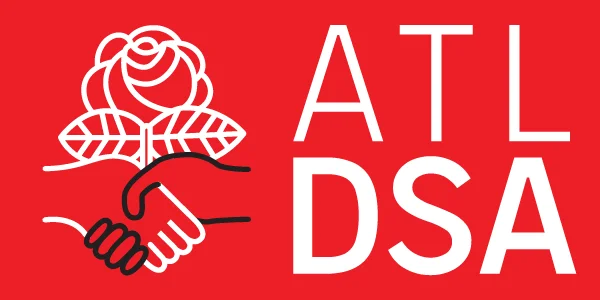

Atlanta DSA endorses Gabriel Sanchez for State House
Atlanta DSA is proud to once again endorse our comrade Gabriel Sanchez for re-election to the Georgia State House, representing District 42.
In 2024, we made history by electing Representative Sanchez, the first Democratic Socialist in Georgia’s State House, on a platform of housing, healthcare, and an economy that works for all of us. Now, he’s running for re-election in 2026 to continue to fight for working families, stand up to fascism, and build a better Georgia for all. Atlanta DSA is thrilled to back our comrade once again.
Gabriel has been an active member of Atlanta DSA since 2019 and has spent years supporting striking workers on picket lines, organizing to Stop Cop City, campaigning for abortion rights, and advocating for a Free Palestine. During his first term, Gabriel continued fighting for working Georgians in the State House with support from a staff made up of DSA members. He introduced bills to raise the minimum wage to $20 and end corporate ownership of Georgia homes, voted to eliminate subminimum wages for disabled workers and against tax cuts for the wealthy, and authored and held a hearing for a bill to end rental price fixing via AI software. Gabriel also brought his many years of experience as a community organizer into his first term. Over the past year, he has hosted in-district mutual aid events in partnership with Atlanta DSA, as well as town halls and meet and greets to speak directly with residents about the pressing issues they’re facing right now. Our chapter is extremely proud of the work Representative Sanchez has done, and we look forward to continuing to build a Georgia for all alongside him.
As a proud Democratic Socialist, Gabriel is refusing money from corporations or their PACs. Just like last time, we’re running a grassroots campaign of, by, and for working people, and we need your help to win this election. Donate now at SanchezForGeorgia.com
In the lead-up to the 2024 election, Atlanta DSA knocked thousands of doors in District 42 to talk directly to voters about Gabriel’s campaign for housing, healthcare, and an economy for all. We’re planning to do the same next year. Sign up now to volunteer with our campaign at atldsa.org/Volunteer4Gabriel and stay tuned for info about a kickoff canvass in the new year. Let’s re-elect Representative Gabriel Sanchez! 
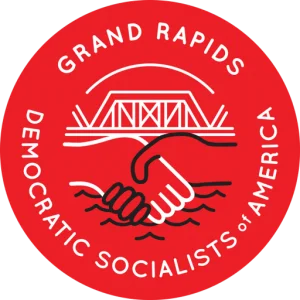

GRDSA for the Many – We support money out of politics, funding education, and rank choice voting!
There are several ballot initiatives circulating petitions this cycle. The members of the GRDSA are proud to endorse Invest in MI Kids, MOP Up Michigan, and Rank MI Vote. If successful, these initiatives would mean real change for Michiganders.
We are circulating petitions! Our goal is to contribute 1,000 collected signatures for the Invest in MI Kids and MOP Up Michigan campaigns. If you are interested in volunteering, please fill out this form.

Invest in MI Kids – investinmikids.org
We support this ballot initiative because every student deserves access to excellent public education. This excellence requires proper facilities, educational material, and well-paid teachers. To fund these vital elements of education, this initiative would create a 5% fair share surcharge on income over $500K ($1M filing jointly) to be deposited in the State School Aid Fund. It will also add a requirement that money from the School Aid Fund be spent exclusively on local school districts.
MOP Up Michigan – mopupmichigan.org
MOP = Money Out of Politics
We deserve fair utilities, a clean environment, and honest elections. But as our bills continue to grow, utility companies use political contributions to avoid accountability and slow down reform. This ballot initiative would reign in corporate control of government by prohibiting companies with over $250,000 in government contracts from making campaign contributions. Additionally, the initiative introduces finance laws which would require donor information to be made more clear in political communications.
Rank MI Vote – rankmivote.org
NOTE: The Rank MI Vote campaign has suspended signature gathering for their 2026 statewide campaign.
We believe every voter should feel comfortable voting for their best option, rather than the better of two bad options. Rank choice voting is an alternative voting system where the voter ranks up to five candidates for each office, as opposed to picking one option. This allows the voter to rank their favorite candidate first, even if they aren’t likely to win, before ranking their second, third, etc. Voters may still vote for just one candidate or leave that office/section blank. If the votes are tallied and no candidate has enough votes to win, candidates with less votes are eliminated and back up choices are used until one candidate wins.
Dishonorable Mention
There are a few bad petitions circulating as well. There are some that would require IDs to vote and one to cut taxes, Ax MI Tax. Decline to sign these regressive initiatives.
The post GRDSA for the Many – We support money out of politics, funding education, and rank choice voting! appeared first on Grand Rapids Democratic Socialists of America.


The Vermont Socialist (12/7/25): The belated November edition
Happy belated Thanksgiving, and apologies for the tardy newsletter. Remember that it’s now flu season, so make sure that your immunizations are up to date (or you too might fall behind on your work!).
The legislative season is around the corner, and legislators are dealing with the fallout from federal budget cuts, with which come an intensification of the ever-present calls for austerity. This year, some of our most vulnerable friends and neighbors were thrown on the street and left without food. GMDSA believes not just that everyone deserves housing and food, but that the money exists — what we need is the political will. That’s why GMDSA’s second annual convention voted to make Tax the Rich our priority campaign for 2026.
Our members also voted on a new slate of officers and committee chairs. Congratulations in particular to Will Fritch, our new East Branch Co-Chair, and Nana Brownell, who will be returning to that same role for West Branch.
Upcoming Events
GMDSA is sponsoring “For Ukrainian Self-Determination: Building International Working Class Solidarity,” featuring our very own Sen. Tanya Vyhovsky and Traven Leyshon. Discussion begins December 15th at 5pm at Migrant Justice (179 S. Winooski Ave., Burlington) .
Talk about your job and learn about shop-floor organizing from peers at Workers' Circle (co-hosted by the Green Mountain IWW) on the second and fourth Wednesdays of each month. The next one is at 6pm and is also at Migrant Justice on December 10th.
GMDSA Meetings
Labor Committee meets December 8 at 6pm
Membership Committee meets December 8 at 7pm
Electoral Committee meets December 9 at 6pm
Communications Committee meets December
General Meeting on December 20th (details TBA; check our calendar)
TState News
Burlington’s democratic, member-run, GMDSA-sponsored cinema is now open for business. Congrats to Partizanfilm on its successful opening!